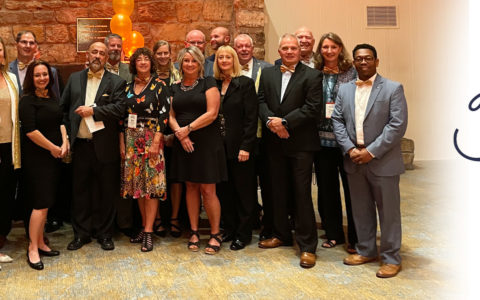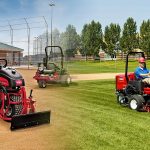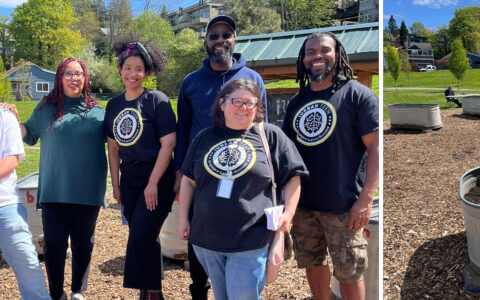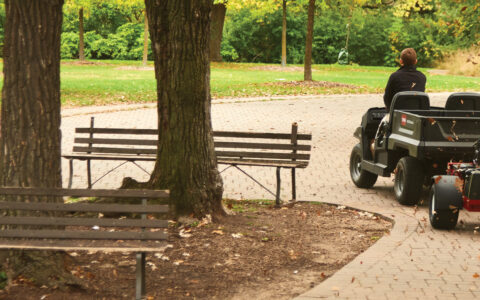Last November, Toro facilitated a meeting of groundskeepers and turf managers across multiple sports to share their insights. We expected to hear about their challenges, best practices and unmet needs. But we weren’t expecting to discover what they had in common.
While the fact they got together isn’t headline-worthy in itself, there was a takeaway worth mentioning: The value of networking can’t be overestimated. It was an interesting look into the world of professional sports turf management and how different perspectives can help solve similar challenges.
We followed up with two of the participants, Minnesota Twins head groundskeeper, Larry DiVito, and Minnesota Vikings turf manager, Grant Davisson, to look back at that day and give us a glimpse of the challenges they face. Here are five things that stood out.
1. They talk about more than turf.
“We’re all working toward the same end result, which is to have the greatest product on earth,” Davisson said. “So it’s nice to get together and relax and talk about problems we have. But it’s never about turf. It’s always interpersonal issues.”
DiVito has had the same experience. “In those meetings, we end up talking less about grass and more about dealing with people and events,” he noted. “Sometimes you hear technical tricks, but more often than not, it’s tricks for dealing with people.”
2. They have customers too.
According to DiVito, a big part of the job is figuring out how to make people happy without compromising your maintenance program. “You’re there to keep your clients happy, and in our case, the clients are the players, coaches and upper management,” he explained. “But at the same time you’re there to grow grass.”
“We all have owners and general managers who are in the public eye,” Davisson added. “We all work for people who have an opinion on how the field is going to look. It’s a customer service industry. We have to create that product. And when we get together, it’s good to talk about that.” He also said they talk about working with the media and TV crews, because they share most of the same area camera operators and sports reporters.
3. They don’t build their crews on experience alone.
“After doing this type of work for a long time, I’ve learned that hiring is more important than training because we end up being together a lot,” DiVito said. For him, finding the right people that fit in, get along and have the right work ethic is critical. “We can train them how to operate machines, but we can’t train personality, and we can’t train work ethic if somebody doesn’t have one. And then I just try to give them room to work. They know I’m there, but I’m not directly watching what they’re doing. There’s accountability, but I also try and give them some room to do what they need to do.”
Davisson told us he looks for knowledge, but there’s something even more important. “I want people who’ve worked in the industry and people who have good references, but most of all, I want people who want to learn,” he said. “A turf background is important, but a master’s or even a bachelor’s degree in it isn’t necessarily required.”
Davisson said they also discuss their young interns and how they’re doing on the job. “In a sense, we’re communicating who the future is. A lot of my guys have gone to work for Larry and vice versa, so it’s interesting to see how they’re ‘growing up’ in the industry.”
4. Even in the ways they’re different, they sometimes find common ground.
“The biggest difference between what I do and what they do is that I have more frequent events,” DiVito observed. “We have 81 games and it becomes more about consistency rather than one big event. But at the same time, we’re on television every night and we’ve got millions of dollars’ worth of players on the field at any given time — just like a professional soccer or NFL team would.”
For DiVito, the goal is to have the field play as close as possible to the same every game, so players know what the speed and the bounce of the ball are going to be from one day to the next. The only variables are seasonal changes in climate and day-to-day weather conditions like rain that drive subtle differences in the field.
Turfgrass maintenance aside, getting in 81 games in a season can be a grind, both mentally and physically. Football and soccer seasons typically only have one or two events per week, but a baseball team can be at home seven or nine days in a row. However, that doesn’t mean turf managers from other sports can’t relate. “For Paul with Real Madrid or Grant with the Vikings, a lot of their time is spent on the practice fields — so that’s a little more in line with the physical demands of what I do,” he added.
5. They’re willing to share best practices.
We asked Davisson if he could share any tips and he was quick to respond. “My entire life is a spreadsheet — that is, for scheduling,” he said. “And just being there is the number-one thing you can do.”
His other tips: Don’t over-explain things to GMs. They don’t want to know all the specifics; they just want to know if the field’s good — yes or no. And also, be part of the dialogue beforehand if you think there’s going to be a problem. “That could be something like, ‘If you’re going to practice out there in the rain, this is what’s going to happen,” he told us. “Give people a heads up, because it’s going to be a lot easier if there is a problem.”
We’re grateful to DiVito and Davisson for the comments they shared with us, and for their willingness to give us a candid look at the challenges of turf managers in professional sports. Their experience highlights the value of networking and getting different perspectives. If you’re looking to connect with other sports turf professionals in your area, your Sports Turf Managers Association (STMA) chapter is a great place to start.
As a company, Toro understands the drive to deliver the best possible product to a variety of customers because it’s one of our core values, too. We’ve built on that goal for more than 100 years, and it’s a privilege to continue to do so for turf professionals at facilities of all kinds — from local parks to schools and universities to professional facilities. For more information about our products for sports fields and grounds, please visit toro.com.












